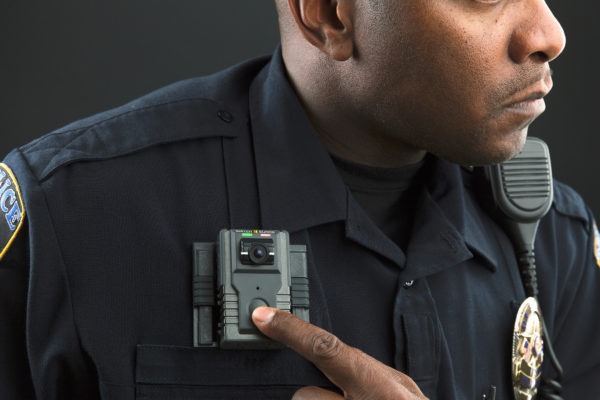Body camera public record exemption needs update for more accountability
A public records exemption that makes confidential certain video footage captured by law enforcement body cameras is set to expire this year. And instead of renewing the exemption, we need lawmakers to review its problems and fix it.
When lawmakers passed the bill in 2017, they put a repeal date on it so that the exemption could be reviewed. But a bill on the calendar to be heard Tuesday in the Senate State and Local Committee would simply extend the exemption another five years.
 The exemption makes confidential any police bodycam video that depicts minors when taken inside a K-12 school; the interior of any facility licensed under the “healing arts” and the “mental health and substance abuse and intellectual and developmental disabilities” parts of the law; and the interior of a private residence that is not being investigated as a crime scene.
The exemption makes confidential any police bodycam video that depicts minors when taken inside a K-12 school; the interior of any facility licensed under the “healing arts” and the “mental health and substance abuse and intellectual and developmental disabilities” parts of the law; and the interior of a private residence that is not being investigated as a crime scene.
The exemption was passed as an effort to protect privacy rights of citizens and children in these places. But it goes too far and puts video that should be subject to the public records law concerning police actions outside the public’s reach simply because they occurred in a certain place.
The purpose of body camera video is to record law enforcement interactions with citizens. When a law enforcement officer is accused, the video could be proof to clear the officer. Or the footage could implicate the officer in violating the law or violating important policies, such as use-of-force or excessive-force policies.
Bodycam footage is important to prosecutors, internal review units, courts and citizens. It’s a step up from relying on a person’s memory of an event.
Flaw is basing exemption on where not what
The exemption that was signed into law in 2017 makes bodycam video confidential based on where the video was taken not based on what the body camera footage depicts. That’s the flaw.
What if a law enforcement action that has come under official review took place in a vet’s office or a city animal shelter? In a nursing home? In an alcohol rehab center? In an optometrist’s office? In a pharmacy? In a dentist’s office? In a podiatrist’s office? In a physical therapist’s office? In a massage establishment? In an assisted living facility?
If you were a citizen inside one of these facilities exempt under the law and footage captured what happened to you in your interaction with law enforcement, don’t you deserve access to the footage as much as the police officer?
But in these places, according to the current statute, the body camera footage is confidential no matter what’s on the video and no matter how important to the public interest in law enforcement accountability.
Police may argue that they can release the video even if the statute says the video is confidential. But it is not clear that state law allows law enforcement or anyone else to release a record that is confidential by statute. And even if they had that kind of discretion, it would be their call on whether to do so or not.
Transparency may be allowed in shooting deaths, but not, for example, a chokehold death
One statute (T.C.A. § 38-8-311) allows the investigative record of an “officer-involved shooting death” to become a public record “after the completion of the prosecutorial function by the district attorney general.”
But it only applies when a person was shot and killed by a law enforcement officer. It would not apply, for example, when a person was killed in a chokehold by police. It would not apply when someone was seriously injured or maimed by law enforcement. It would not apply when a school resource officer (considered law enforcement) used excessive force on children in a school.
Individual privacy can still be protected
Individual privacy should still be protected and continues to be an important issue intertwined with the use of body cameras by police.
But it’s also possible to protect citizen privacy and innocent bystanders through redaction before video is released. Clients, patients, youth or others in schools or facilities licensed by the state who happen to be captured in a bodycam video but are unrelated to the law enforcement action in question can still be protected in this way.
We need a different approach so that body camera footage can do what it’s supposed to do when the video deals with oversight and accountability of law enforcement.




